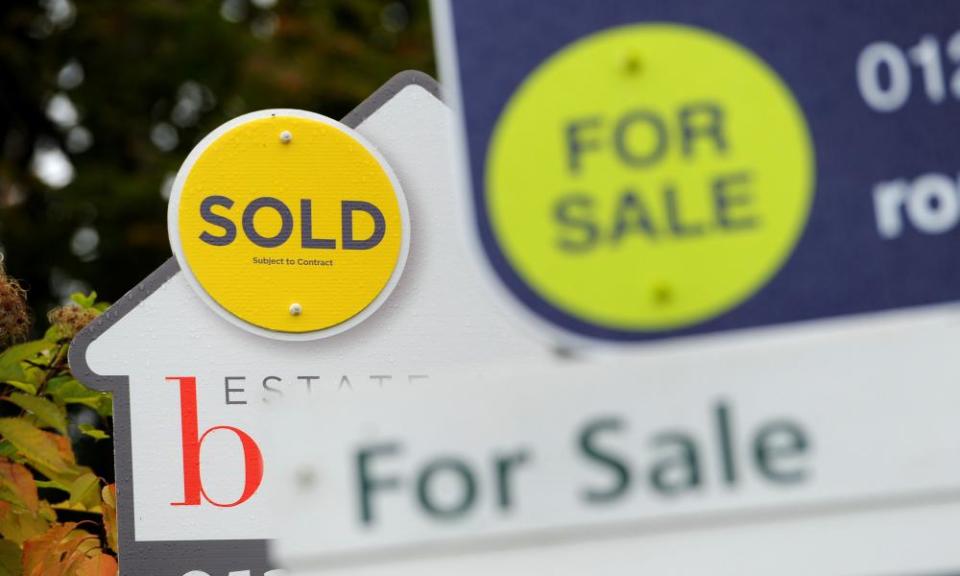UK house prices show strongest monthly rise since 2007

House prices registered the strongest monthly rise for 14 years in September, pushing the average cost of a home to a record high and reversing a three-month decline in annual growth.
Halifax, one of the country’s biggest mortgage lenders, said last month the average cost of a home rose by 1.7%, or £4,425, to £267,587. The previous peak was £263,162 recorded in August.
“The average house price is now as expensive as it ever has been,” said Russell Galley, the managing director of Halifax.
The annual rate of house price inflation rose to 7.4% from 7.2% in August, reversing a downward trend since hitting a peak of 9.6% in May. Prices are up by more than £18,000 since last September and close to £28,000 higher than last June when the housing market reopened after the first Covid lockdown.
Galley said a number of factors were affecting house price growth, given that most mortgages agreed in September would not have completed before the government ended the stamp duty holiday in England.
“The ‘race for space’ as people changed their preferences and lifestyle choices undoubtedly had a major impact,” said Galley. “Looking at price changes over the past year, prices for flats are up just 6.1%, compared with 8.9% for semi-detached properties and 8.8% for detached homes.”
Wales continues to experience the strongest house price inflation in any UK nation or region, climbing 11.5% in September to an average of £194,286. Scotland remains ahead of the national average at 8.3%, with an average house price of £188,525, while the Northern Ireland market rose 9.3% to £166,299.
The south-west remains the hotspot in England, reporting 9.7% growth in September to an average of £276,226, as the trend towards more rural living in a more flexible and remote working environment continues.
Greater London remains the nation’s growth laggard with house prices rising just 1%, albeit with the highest average price in the UK to £510,515, and the only region to record a fall over the last three-month period (0.1%).
Halifax warned the market could soften in the coming months as cost of living rises and tax increases give buyers pause for thought. However, low borrowing costs and an improving labour market could keep the market buoyant.
“Perhaps the biggest factor in determining the future of house prices remains the limited supply of available properties,” said Galley. “With estate agents reporting a further reduction in the number of houses for sale, this is likely to underpin average prices, though not the recent rate of price growth, into next year.”

 Yahoo Finance
Yahoo Finance 